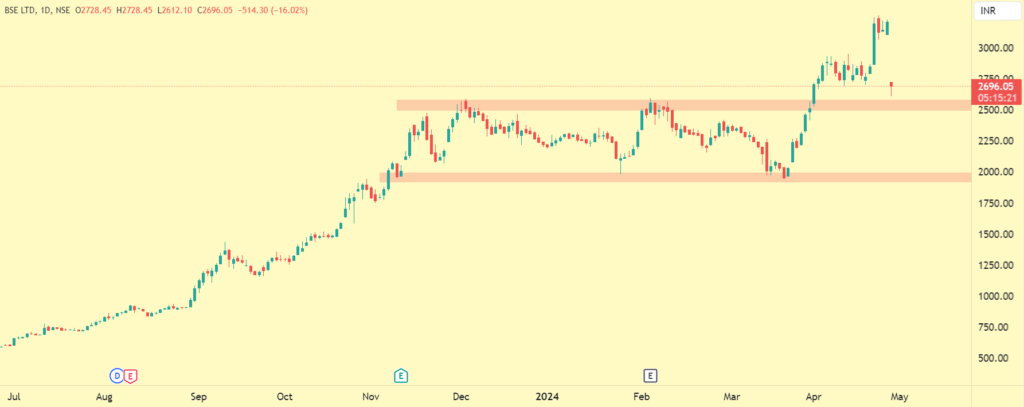#NSE0013-What Is Next in BSE Ltd
The directives from the Securities and Exchange Board of India (SEBI) concerning the Bombay Stock Exchange (BSE) signify a significant regulatory and financial adjustment that could influence its operational and financial landscape. Let’s break down the impact and implications of these changes:
SEBI’s direction for BSE to compute regulatory fees based on “notional turnover” rather than the “premium” component of transactions marks a pivotal shift. This could potentially increase the amount of regulatory fees BSE must pay.
The financial implications as indicated include a material impact totaling ₹100 crores, comprising ₹69 crores in recalculated fees and ₹31 crores in interest at a rate of 15% per annum. This sizable amount could affect BSE’s earnings in the short term, potentially influencing its financial statements and stock price as the market digests the implications of this higher outflow.
The financial metrics you provided about a company—Market Capitalization of ₹36,457 Crores, a status of being almost debt-free, and a Stock Price-to-Earnings (P/E) Ratio of 89.6—paint a picture of a company with a substantial market valuation and potentially strong financial health due to low debt levels. However, the high P/E ratio suggests other considerations for analysis.

Thought Of the Day- Every Crisis has an Opportunity.
The sharp drop of 15% likely reflects immediate market reactions to the regulatory changes and the financial impact of the additional fees and interest. Investors might be concerned about the increased expenses and how they will affect the exchange’s profitability.
The ₹2500 mark, which is now acting as support, suggests a price level where demand is strong enough to prevent the price from declining further. Observing the trading volume and price action around this level will be crucial. If this support holds, it could be a consolidation point before any potential rebound. If the price breaks below this support, further declines could be anticipated.
BSE, established in 1875, is Asia’s first and the world’s fastest stock exchange with a speed of 6 microseconds. It has a rich history and was for many years the only stock exchange in India.While NSE has a higher share of the derivatives and equity markets, BSE has maintained a strong presence in certain segments. For example, BSE’s SME platform is highly popular for smaller companies wanting to raise capital. Also, BSE often lists more companies annually, although the larger IPOs typically prefer NSE due to its higher liquidity.
Disclaimer-
It’s important to note that discussions like are for informational purposes only and should not be taken as specific We are not SEBI registered investment advisor. Whether analyzing a company’s financial health, examining market trends, or discussing technical chart patterns, the goal is to provide insights and perspectives that can help you make more informed decisions according to your own research and investment strategy. Always consider consulting with a financial advisor or conducting thorough personal research before making any investment decisions.





